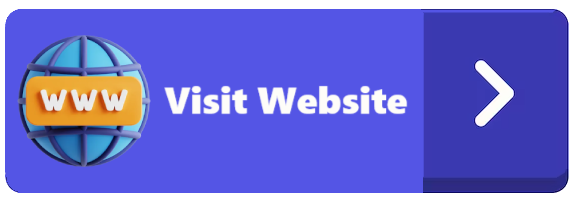
Google Search: A Comprehensive Overview of Google's Core Tool
Google Search is the foundational tool of Google’s ecosystem, widely recognized as the most popular and powerful search engine in the world. It was launched with the mission to organize the world’s information and make it universally accessible and useful. Google Search has since evolved into a sophisticated platform that helps users find information quickly and accurately across an immense range of topics and content types.
At its core, Google Search allows users to enter queries in the form of text or voice and receive results that are relevant, up-to-date, and categorized for ease of understanding. The search engine indexes billions of web pages, images, videos, maps, news articles, scholarly documents, and other online content. Its algorithms analyze and rank results based on relevance, freshness, authority, and user behavior.
Key Features and Applications of Google Search
Google Search supports a wide range of query types, including questions, keywords, phrases, and even incomplete sentences. It uses advanced natural language processing to understand user intent and provide relevant results, even for vague or complex queries.
The platform delivers instant answers to common questions through features like Featured Snippets and the Knowledge Panel. These tools provide definitions, facts, images, and summaries directly at the top of the search results page, allowing users to get quick insights without clicking on individual links.
Users can search for news from a variety of verified sources. Google News integration within search results allows users to view headlines, updates, and developments on current events from multiple perspectives, including local and international news.
Google Search enables users to find images and videos through dedicated search tabs. Image Search helps locate visual content for creative, academic, or research purposes, while Video Search indexes media from YouTube and other video platforms for entertainment, learning, or professional needs.
The search engine also provides results for specific local information such as nearby restaurants, stores, service providers, events, and landmarks. Location-based queries benefit from integration with Google Maps, displaying addresses, business hours, reviews, and directions.
Users can explore information related to weather, sports scores, market data, flight schedules, translations, time zones, and conversions. These features are particularly helpful for travelers, students, business users, and everyday decision-making.
Google Search includes a SafeSearch filter, which can be enabled to block explicit or inappropriate content. This makes it suitable for use in educational and family settings. Parental controls and content filters are also available through connected Google services.
Voice search allows users to perform searches by speaking instead of typing. It’s especially useful for mobile users or those with accessibility needs. The feature supports multiple languages and understands natural speech patterns.
Advanced search operators are available for refining results. These include filtering by file type, domain, date, language, and specific phrases. Researchers, students, and professionals can use these tools to narrow results for more precise searches.
Cost and Accessibility
Google Search is completely free to use. There is no subscription fee or payment required to access the search engine or its features. All users with an internet connection can access the full range of Google Search capabilities without cost, making it an essential tool for individuals and organizations around the world.
While the platform itself is free, some of the websites it links to may charge for content, such as premium news articles, academic papers, or subscription-based services. However, the search engine often provides previews or summaries that allow users to determine the value of a source before accessing it.
Google monetizes the platform through advertisements, which appear as sponsored results in designated areas of the search results page. These ads are clearly labeled and are based on user queries, but they do not interfere with access to organic results.
Comparison with Other Google Tools
Unlike specific tools such as Google Scholar for academic research or Google Maps for navigation, Google Search serves as a central access point that can lead users to all other Google services. It acts as a gateway for discovering content, launching apps, and answering general-purpose queries.
In comparison to tools like Gmail or Google Drive, which require account logins and store personal data, Google Search is generally open and does not require users to sign in. However, signed-in users may receive personalized search results based on their preferences and activity history.
While tools like Google Assistant and Google Discover offer proactive information delivery, Google Search relies on user input. It is driven by the user’s questions and preferences at the moment, making it a more intentional tool for exploring information.
Compared to other search engines like Bing or Yahoo, Google Search stands out for its speed, accuracy, comprehensiveness, and the quality of its ranking algorithms. Its continuous innovation and integration with the broader Google ecosystem give it a significant advantage in delivering useful and reliable results.
Ideal Use Cases
Google Search is used globally across all age groups and professions. It serves students researching school topics, professionals seeking technical solutions, travelers planning trips, consumers comparing products, and everyday users answering questions or resolving problems.
It is also heavily relied upon by journalists, marketers, educators, software developers, and researchers. The ability to search quickly, efficiently, and accurately makes it indispensable in both casual and professional contexts.
Additionally, Google Search supports multilingual queries, making it a valuable resource for users around the world who need access to content in their native language or are seeking translations and cross-cultural information.
Conclusion
Google Search is the backbone of Google's toolset and remains one of the most essential digital tools globally. With its intuitive design, advanced algorithms, and powerful capabilities, it allows users to access and discover information across the internet quickly and efficiently. It is entirely free to use and serves as a central hub for finding answers, learning new topics, exploring ideas, and connecting with content from around the world. For individuals, professionals, and organizations alike, Google Search is a reliable, comprehensive, and indispensable tool that continues to evolve with the needs of its users.












